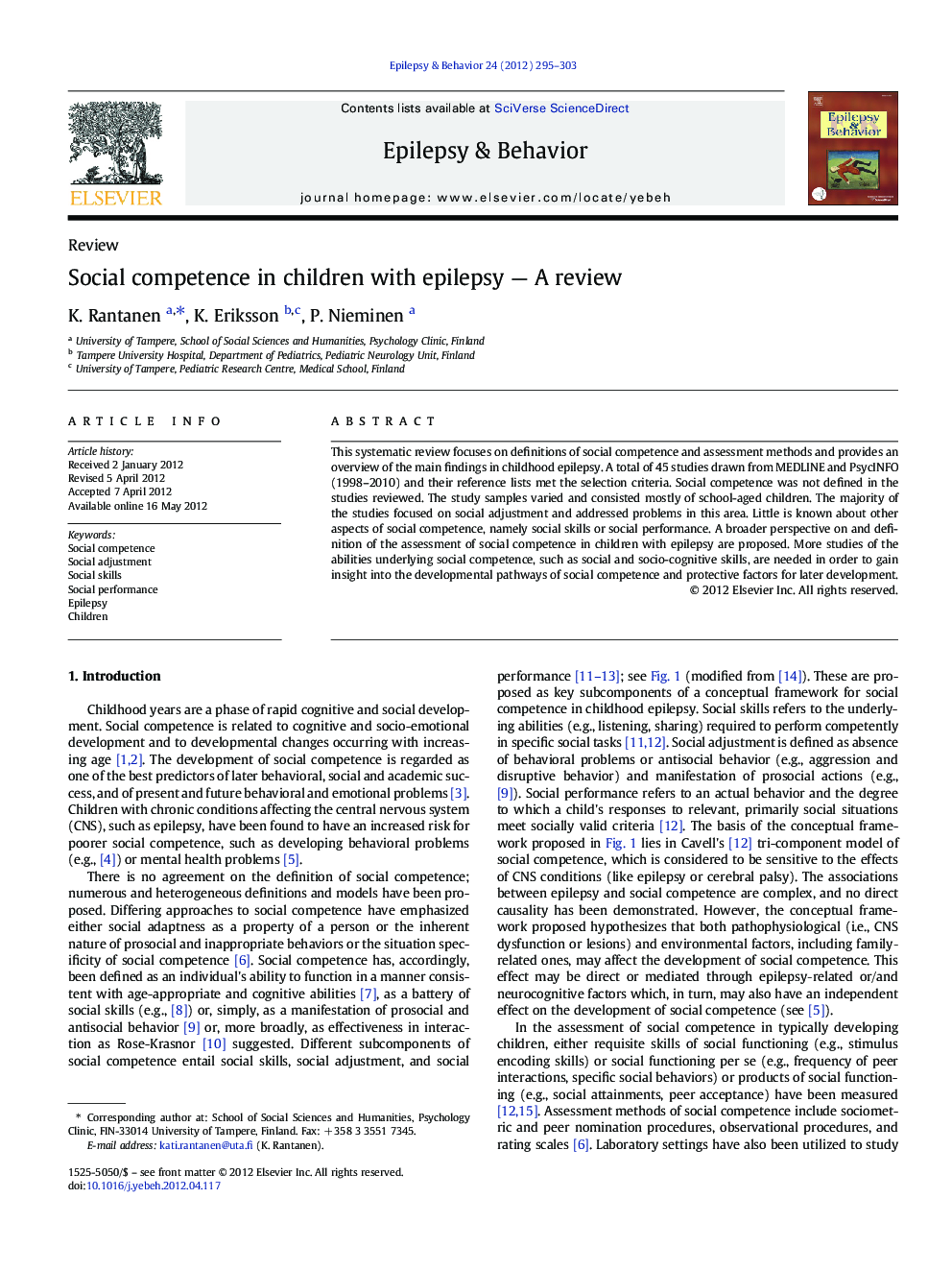| Article ID | Journal | Published Year | Pages | File Type |
|---|---|---|---|---|
| 3049822 | Epilepsy & Behavior | 2012 | 9 Pages |
This systematic review focuses on definitions of social competence and assessment methods and provides an overview of the main findings in childhood epilepsy. A total of 45 studies drawn from MEDLINE and PsycINFO (1998–2010) and their reference lists met the selection criteria. Social competence was not defined in the studies reviewed. The study samples varied and consisted mostly of school-aged children. The majority of the studies focused on social adjustment and addressed problems in this area. Little is known about other aspects of social competence, namely social skills or social performance. A broader perspective on and definition of the assessment of social competence in children with epilepsy are proposed. More studies of the abilities underlying social competence, such as social and socio-cognitive skills, are needed in order to gain insight into the developmental pathways of social competence and protective factors for later development.
► Social competence was usually not defined in the studies reviewed. ► Social competence was mostly regarded as a manifestation of behavior problems. ► Most studies focused on social adjustment, and addressed problems in this area. ► Positive aspects of social competence (e.g. social skills) were less studied.
